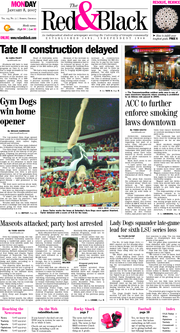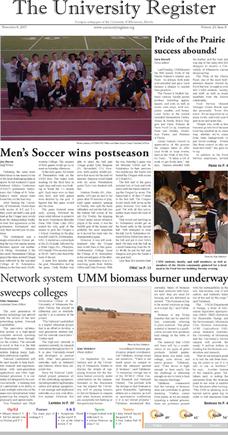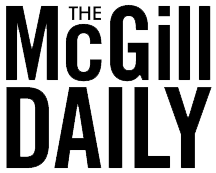
Carnegie Mellon University (CMU) is a private research university in Pittsburgh, Pennsylvania. The institution was originally established in 1900 by Andrew Carnegie as the Carnegie Technical Schools. In 1912, it became the Carnegie Institute of Technology and began granting four-year degrees. In 1967, it became the current-day Carnegie Mellon University through its merger with the Mellon Institute of Industrial Research, founded in 1913 by Andrew Mellon and Richard B. Mellon and formerly a part of the University of Pittsburgh.
The Peak is the independent student newspaper of Simon Fraser University in Burnaby, British Columbia, Canada. It is split into six major sections: News, Opinions, Features, Arts, Sports, and Humour.
The South End is the official student newspaper of Wayne State University in Detroit, Michigan, published in print and online. It was founded in 1967, and its publication is funded partly from university funds and partly from advertising revenues. It is distributed free of charge.

The Technique, also known as the "'Nique", is the official student newspaper of the Georgia Institute of Technology in Atlanta, Georgia, and has referred to itself as "the South's liveliest college newspaper" since 1945. As of the fall semester of 2011, the Technique has a weekly circulation of 10,000, distributed to numerous locations on the Georgia Tech campus and a handful of locations in the surrounding area. The first issue of the Technique was published on November 17, 1911, and the paper has printed continuously since its founding. The paper publishes weekly throughout the regular school year and primarily covers news, events and issues specific to the Georgia Tech community. In 2004 it was one of 25 collegiate newspapers to receive the Pacemaker award from the Associated Collegiate Press.
The Orion is the student newspaper of California State University, Chico and produces 32 issues every year, 16 each semester. Its offices are in the basement of Plumas Hall on the Chico State campus. It has won numerous state and national awards, including several National Pacemakers. Its name is taken from the constellation Orion, as the newspaper is meant to be a "hunter of truth."

Carnegie Mellon Silicon Valley is a degree-granting branch campus of Carnegie Mellon University located in the heart of Silicon Valley in Mountain View, California. It was established in 2002 at the NASA Ames Research Center in Moffett Field.
The Emory Wheel is the independent, student-run newspaper at Emory University in Atlanta, Georgia. The Wheel is published every other week on Wednesday during the regular school year, and is updated daily on its website. The sections of the Wheel include News, Opinion, Sports, Arts & Entertainment, Emory Life and Multimedia. The paper also produces The Hub, an award-winning quarterly magazine founded in 2005. Serving the Emory community since 1919, the Wheel is editorially and financially independent from the University. The staff is composed entirely of students. The Wheel offices are currently located in the Alumni Memorial University Center (AMUC).

Javier "Javi" Grillo-Marxuach, born October 28, 1969 in San Juan, Puerto Rico, is a television screenwriter and producer, and podcaster, known for his work as writer and producer on the first two seasons of the ABC television series Lost, as well as other series including Charmed and Law & Order: Special Victims Unit.

Scotch'n'Soda is a student-run theatre organization that resides on the campus of Carnegie Mellon University. Its initial dedication was the creation and production of original musicals, but has now taken to performing both professionally published and student-written materials. Students are welcome to write, compose, design, direct, perform in, and otherwise become involved with every aspect of each production. The organization is open to all Carnegie Mellon students from all backgrounds who are interested, and all performances are public with varying ticket prices.

The Red & Black is an independent weekly student newspaper serving the University of Georgia (UGA), updated daily on its website.
Carnegie Mellon University is home to a variety of unique traditions, some of which date back to the early days of its over 100-year history. Many of these traditions hearken to the university's strength in engineering, such as the buggy races and the mobots, while others are purely social in nature, such as Spring Carnival and The Fence.
The Medium a student newspaper in the United States. It is a student-run weekly satire and comedy publication at Rutgers University, the state university of New Jersey. Founded in 1970 as The Livingston Medium, it is the second largest newspaper in circulation at Rutgers University, after the official student newspaper, The Daily Targum. Referring to itself as the "Entertainment Weekly of Rutgers University", the more recent incarnations of The Medium focus on satirical and humorous articles based on current events, popular culture, and events on the Rutgers campuses. Since 1970, the newspaper has been headquartered on Livingston Campus.
The Daily Campus, founded in 1896, is a student-run newspaper at the University of Connecticut that has a circulation of 2,000 on weekdays during school term. The Daily Campus has the largest circulation of any college paper in Connecticut and the third-largest in New England, behind The Daily Collegian (UMass) and The Harvard Crimson. Since its creation, the newspaper has undergone several name changes, having starting as The Storrs Agricultural College Lookout, a monthly, when it published its first issue on May 11, 1896. The name was changed to The Connecticut Campus in 1915, followed by The Connecticut Daily Campus, and then finally The Daily Campus in 1984. It began publishing five days a week during the academic year in 1952 and became a morning paper in 1955.

The University Register (UR) is the official campus newspaper of the University of Minnesota Morris, and is published bi-weekly during the academic year. It primarily serves the University of Minnesota Morris campus and the greater Morris community. The paper is entirely student-run, operating out of the basement of the school's Multi-Ethnic Resource Center, and distributes over 1,500 copies to the campus every Thursday night. A typical issue of The UR is between fourteen and eighteen pages long, and consists of five sections: News, Editorial, Arts & Entertainment, Variety, and a Feature.

The McGill Daily is an independent student newspaper at McGill University and is entirely run by students. Despite its name, the Daily has reduced its print publication to once a week, normally on Mondays, in addition to producing online-only content and weekly radio segments for CKUT 90.3 FM.

The Work is the official student publication of Tarlac State University (TSU) in Tarlac City, Philippines founded in 1948. It is a member of the College Editors Guild of the Philippines (CEGP), the oldest existing alliance of student publications in the country committed to uphold students' rights and press freedom.
The 1910 Carnegie Tech Tartans football team represented the Carnegie Institute of Technology—now known as Carnegie Mellon University—as an independent during the 1910 college football season. Led by Winks Dowling in his first and only season as head coach, Carnegie Tech compiled a record of 3–7.
The 1934 Carnegie Tech Tartans football team represented the Carnegie Institute of Technology—now known as Carnegie Mellon University—as an independent during the 1934 college football season. Led by second-year head coach Howard Harpster, the Tartans compiled a record of 4–5.
The 1935 Carnegie Tech Tartans football team represented the Carnegie Institute of Technology—now known as Carnegie Mellon University—as an independent during the 1935 college football season. Led by third-year head coach Howard Harpster, the Tartans compiled a record of 2–5–1.
The 1924 Carnegie Tech Tartans football team was an American football team that represented the Carnegie Institute of Technology during the 1924 college football season. Led by tenth-year head coach Walter Steffen, Carnegie Tech compiled a record of 5–4.










